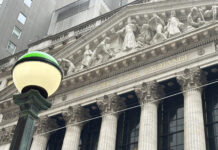The widening gap between rich and poor is eroding faith in the American dream.
By almost two to one – 64 percent to 33 percent – Americans say the U.S. no longer offers everyone an equal chance to get ahead, according to a Bloomberg National Poll. And some say the government isn’t doing much to help.
“There’s a lot of policies that make it easier for the rich to get richer and the poor to go nowhere,” said Ryan Sekac, 26, a mechanical engineer in Westerly.
The Dec. 6-9 poll follows public statements by leaders, from President Barack Obama to Pope Francis, expressing alarm about growing income inequality. The richest 10 percent of Americans last year earned more than half of all income, the largest total since 1917, according to Emmanuel Saez, an economist at the University of California at Berkeley.
“Everyone on both sides of the aisle talks about the American dream,” said Sekac. “Right now, that’s not something everyone in this country can aspire to.”
Still, respondents are almost evenly split on the need for government action to narrow the income gap: 45 percent say new policies are needed, while 46 percent say it would be better to allow the market to operate freely even if the gap gets wider.
The lack of faith is especially pronounced among those making less than $50,000 a year: By a 73 percent to 24 percent margin, they say the economy is unfair. Even 60 percent of those whose annual income is $100,000 or more bemoan the absence of a fair deal while 39 percent say everyone has an equal shot to advance.
In the Bloomberg poll, 68 percent of Americans say the income gap is growing, while 18 percent say it is unchanged and 10 percent say it’s shrinking.
While the public is divided over whether the government should take steps to close the income gap, support for greater action is strongest among lower-income Americans, with 52 percent saying officials should do something and 35 percent putting their faith in the market.
High-income respondents split almost evenly on the need for government action. Middle-income Americans, those making $50,000 to $100,000, favor relying on the market by 54 percent to 39 percent. •
No posts to display
Sign in
Welcome! Log into your account
Forgot your password? Get help
Privacy Policy
Password recovery
Recover your password
A password will be e-mailed to you.












